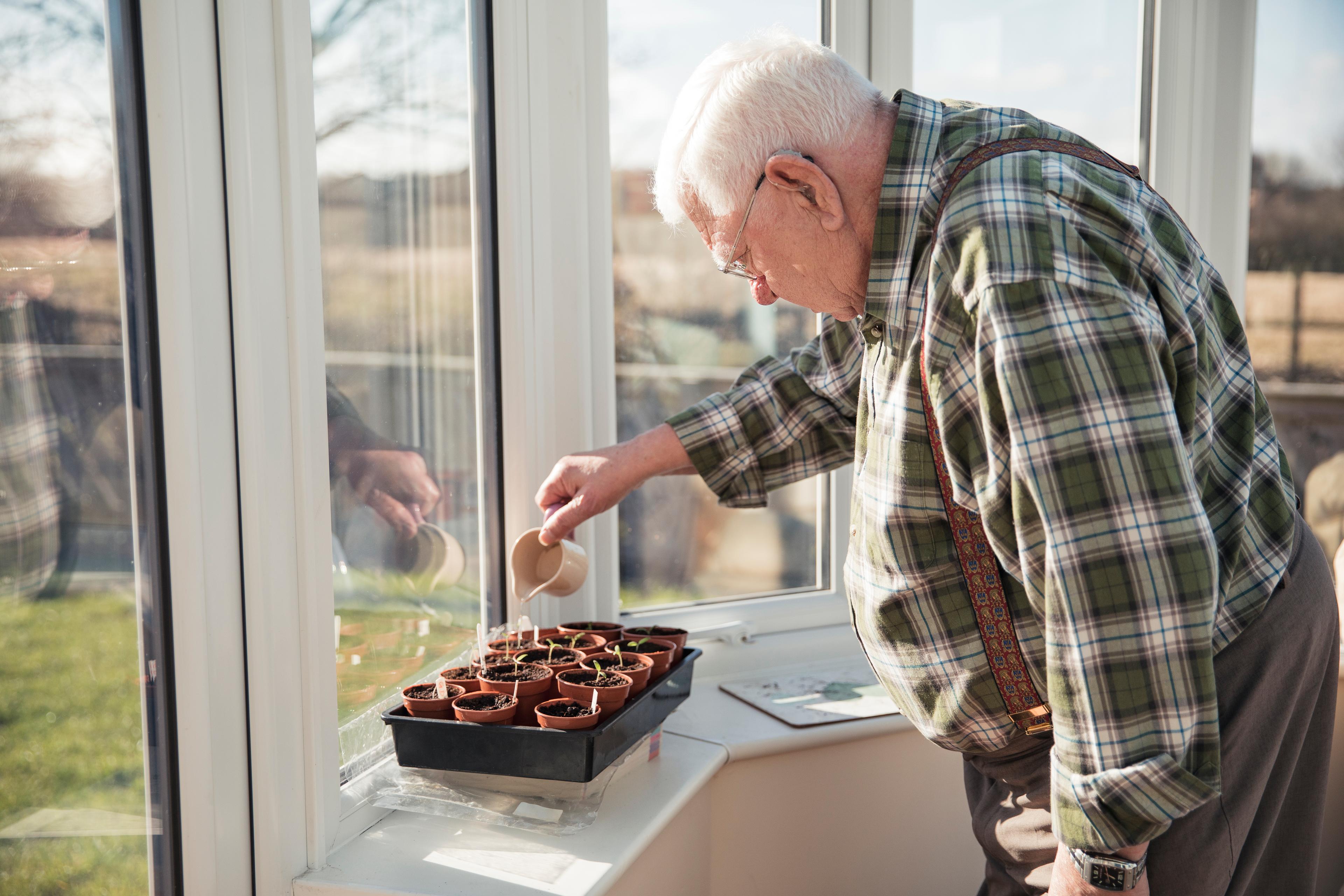Preventing Falls at Home: Ways to Reduce the Risk for Seniors

Dr. Raymond Hobbs
| 3 min read

More than one in four people aged 65 years or older fall each year. In 2020, 3 million older adults went to the emergency room for a fall-related injury.
Older adults are more susceptible to falling for multiple reasons. As senses like vision and hearing begin to dull with age, so do reflexes. Some health conditions – like diabetes, heart disease or issues with nerves and feet – can affect an individual’s balance. Other health conditions such as incontinence can also cause a person to try and rush to the bathroom, which could increase the risk of a fall.
Additionally, muscle mass can reduce with age and contribute to issues with balance, causing unsteadiness. Unsafe footwear or painful foot problems can also increase an individual’s risk of falling. Older adults may be managing more health conditions through medications, some of which may have side effects like dizziness or confusion.
Falling is not a normal part of aging. Understanding why seniors are at risk of falling can help individuals, caregivers, friends and families prevent them from happening in the first place.
The danger of falls to older adults
For senior adults, falls can pose a serious risk to their ability to live independently.
One in five senior adults experiences a serious injury from a fall. Common serious injuries include a broken bone like a wrist, arm, ankle or hip fracture. They may also experience a head injury, which is particularly serious for an individual who is taking a medication like blood thinners.
As the risk of falling rises with age, many older adults fear falling and the health problems that come along with it – which causes them to move around less and to become weaker. This poses a larger issue, as regular movement is especially important for older adults to maintain their muscular strength and keep up with social activities – both of which are good for mental and physical health.
Five fall prevention strategies
The best way to keep older adults safe from falls is by preventing them from happening in the first place. Here are five fall prevention strategies to consider, in consultation with a health care provider:
- Get hearing and vision checked annually: Make sure glasses prescriptions are up-to-date with annual vision checks – or more frequently if a doctor requests it. Hearing checks are also important to make sure any changes are detected quickly. Ensuring older adults can see and hear their surroundings as clearly as possible can help keep them from tripping or falling.
- Make improvements at home: Start with the floors, by removing or taping down throw rugs and coiling or taping cords and wires to the wall. Place nightlights along hallways and in the bathroom, as well as non-slip or self-stick mats on the shower or tub floor. Grab bars can be added in in the tub, shower and near the toilet. Swap out lightbulbs for brighter bulbs. Move reading lamps close to chairs and beds so they are within reach. Secure handrails and bannisters so they aren’t loose.
- Build physical strength: Talk with a doctor about exercises that can be done to improve strength, balance and flexibility. Often, community centers or a local Area Agency on Aging may have resources available.
- Review medications: Regularly check with a doctor or pharmacist to see if any medications that have been prescribed could come with an increased risk of falls.
- Talk to a health care provider: Older adults should review their personal health history – as well as any history of falls – with a health care provider to understand any future risks. A doctor can recommend prevention strategies that fit their personal needs and circumstances.
Raymond Hobbs, M.D., is a senior medical director at Blue Cross Blue Shield of Michigan.
Photo credit: Getty Images





